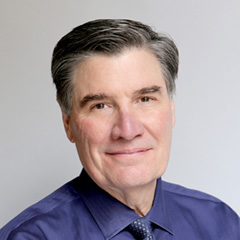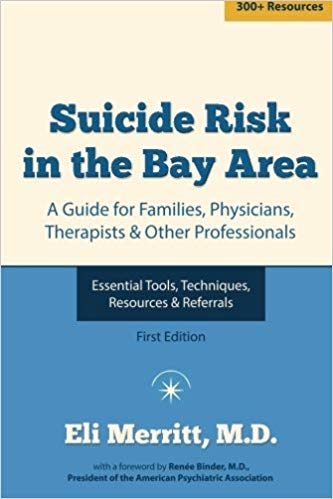by Rona | Apr 4, 2023 | Uncategorized
Listen here to today’s show (4/10/23) on 94.1FM—KPFA.org
https://kpfa.org/player/?audio=398972
From microdosing mushrooms, to ecstasy, to Ketamine-assisted psychotherapy (KAP), the Bay Area is home to what some are calling a psychedelic renaissance.
Ketamine-assisted psychotherapy is a treatment method that involves utilizing ketamine to help patients struggling to find relief from mental health symptoms such as resistant depression, post-partum depression, terminal illness anxiety, or PTSD. It is also used by some to explore existential and spiritual questions about their life.
Join me and my guest Melissa Whippo to discuss Ketamine-assisted psychotherapy. We’ll discuss why preparation before the treatment, integration afterwards, and the set and setting, are so important in this treatment model.
Guest:

Melissa Whippo is a licensed clinical social worker, certified yoga instructor, and practitioner of sacred herbalism. She has guided thousands of women through transformational experiences, from motherhood to the ceremonial. Her work focuses on holistic healing, liminal self discovery, and sacred reciprocity. Clinically, she incorporates aspects of attachment theory, object relations, internal family systems, and has a keen interest in dreamwork and authentic movement. She has been practicing Ketamine Assisted Psychotherapy since 2019 and has been a lead trainer with the Ketamine Training Center and Inbodied Life. She is pioneering research on postpartum depression and psychedelics. Learn more at www.melissawhippo.com
Resources:
-The Fireside Project is a help and harm-reduction site for people working with psychedelics.
-MAPS is a foundation working in clinical research Phase 3 trials for psilocybin and MDMA.
-The Beckley Foundation is a female-founded psychedelic research organization in the U.K. that also runs retreats in Jamaica, where psilocybin is legal.
-Erowid is a longtime online source of information for all things psychedelic, including sourcing and dosing.
-Reddit has several subreddits dedicated to psychedelics, including resource materials, sourcing and dosing.
-The Ancestor Project is a source of support for psychedelic use and integration focused on BIPOC (Black, Indigenous and people of color).
by Rona | Jan 18, 2023 | KPFA, Podcasts, Radio Shows
Join me and my guest Dr. Michael A. Tompkins to discuss the current mental health crisis that teens and adults are facing, and ways to build resilience and experience greater well being.
KPFA.org—94.1FM 1/23/23
During these last few years stressors such as isolation, fear of infection, poor sleep, grief, change in routine, and financial worries have all been factors in increased anxiety and depression. Before the pandemic there were many people who weren’t being treated for their mental health challenges, and now even larger numbers of people across the country remain unable to get the care they need for both pre-existing and newly developed mental health concerns.
If you are experiencing depression and anxiety you are certainly not alone!
Research from Boston University School of Public Health revealed that the elevated rate of depression (in 2021) climbed to 32.8% affecting 1 in every 3 American adults.
Guest:

Michael A. Tompkins, PhD, ABPP is a licensed psychologist and board certified in Behavioral and Cognitive Psychology by the American Board of Professional Psychology. He is the co-director of the San Francisco Bay Area Center for Cognitive Therapy and a faculty member for theBeck Institute for Cognitive Behavior Therapy.He is the author of numerous articles and chapters on cognitive-behavior therapy and related topics, as well as 15 books, including his best-selling book for teens, My Anxious Mind: A Teen’s Guide to Managing Anxiety and Panic (Magination Press, 2010), which is included in the Reading Well for Young People initiative sponsored by the Wellcome Trust, London, United Kingdom. His newest books for teens are, The Anxiety and Depression Workbook for Teens: Simple CBT Skills to Help You to Deal with Anxiety, Worry, and Sadness (New Harbinger Publications, and Stress Less: A Teen’s Guide to Live a Calm Chill Life. (Magination Press, 2023).
Need Support Now? If you or someone you know is struggling or in crisis, help is available. Call or text 988
by Rona | Nov 20, 2020 | KPFA, Podcasts, Radio Shows
Listen now at to the show from 11/23/20 on KPFA.org—94.1FM
I was in conversation with Monique Thompson, PhD, about her new book, Cognitive Behavioral Therapy for Depression
During these stressful times many people are feeling anxious and depressed, and some people are struggling with grief from the loss of a loved one. Feeling stress, grief, or having the blues, is not the same as suffering from depression. Depression is one of the most common mood disorders, and is highly treatable, although no two people are affected the same way by depression and there is no “one-size-fits-all” for treatment.
1-800-273-8255 is the National Suicide Prevention Lifeline. If you or someone you know is considering suicide, call this number. The Lifeline provides 24/7 free and confidential support for people in distress, and resources for you and your loved ones.
Guest:

Monique Thompson is a licensed clinical psychologist. She received a doctoral degree in clinical psychology from California School of Professional Psychology. She is a certified cognitive therapist and Diplomate of the Academy of Cognitive Therapy. Dr. Thompson is trained in Cognitive Behavior Therapy for Insomnia (CBT-I), an empirically supported treatment for insomnia and other sleep disorders. Dr. Thompson has extensive experience providing individualized cognitive therapy to adults and teens. She treats depression, anxiety disorders, sleep disorders, executive functioning deficits, and challenging life transitions. She has practiced in a variety of settings, including Kaiser Permanente in Walnut Creek and Pleasanton, UC Berkeley, and private practice. She spent several years at the Golden Bear Mood and Sleep Research Center at UC Berkeley as a member of a treatment development team, and has published research on memory mechanisms and interventions to improve individual therapy outcomes. She is adjunct faculty at UC Berkeley Extension. She recently co-authored a book on Teen Insomnia with Dr. Michael Tompkins, The Teen Insomnia Workbook. Her second book, Cognitive Behavioral Therapy for Depression: Strategies to Challenge Negative Thinking and Start Living Your Life was released on November 13, 2020. You can reach her at Monique Thompson, PsyD.
(510) 652-4455, ext. 1.
by Rona | Aug 22, 2018 | Announcements, Appearances, KPFA, Radio Shows, Uncategorized
1-800-273-8255 National Suicide Prevention Lifeline. If you or someone you know is considering suicide, call this number. The Lifeline provides 24/7 free and confidential support for people in distress, and resources for you and your loved ones.
My guests, Eli Merritt MD, and Esme Shaller, PhD, joined me to discuss the suffering and anguish that is associated with suicide. We addressed the grief, guilt, and shame people feel when someone they love has killed themselves, and also the pain and hopelessness that a person experiences when they are considering suicide.
Talking about suicide is challenging, but it’s vital that we TALK ABOUT IT.
 Eli Merritt, M.D., is the founder of Merritt Mental Health, a mental health and addiction care navigation company that connects patients and family members with best-fit, individualized mental health care nationwide. He is the author of Suicide Risk in the Bay Area: A Guide for Families, Physicians, Therapists, and Other Professionals, and is currently a Visiting Scholar at Vanderbilt University where he is investigating a Unified Theory of Depression. Dr Merritt has previously held positions as president of the San Francisco Psychiatric Society and as an Adjunct Clinical Faculty member at Stanford. He completed a B.A. in history at Yale, M.A. in ethics at Yale, medical degree at Case Western Reserve, medical internship at the Lahey Clinic, and residency in psychiatry at Stanford. He has written on diverse topics in medicine, psychiatry, and medical ethics, including diagnosis, insomnia and depression, addiction, suicide prevention, informed consent, and privacy issues in mental illness. He has taught medical students and resident physicians courses on psychiatric interviewing, ethical standards and boundary violations, the placebo effect, hyperthyroidism, and medical decision-making, among other subjects.
Eli Merritt, M.D., is the founder of Merritt Mental Health, a mental health and addiction care navigation company that connects patients and family members with best-fit, individualized mental health care nationwide. He is the author of Suicide Risk in the Bay Area: A Guide for Families, Physicians, Therapists, and Other Professionals, and is currently a Visiting Scholar at Vanderbilt University where he is investigating a Unified Theory of Depression. Dr Merritt has previously held positions as president of the San Francisco Psychiatric Society and as an Adjunct Clinical Faculty member at Stanford. He completed a B.A. in history at Yale, M.A. in ethics at Yale, medical degree at Case Western Reserve, medical internship at the Lahey Clinic, and residency in psychiatry at Stanford. He has written on diverse topics in medicine, psychiatry, and medical ethics, including diagnosis, insomnia and depression, addiction, suicide prevention, informed consent, and privacy issues in mental illness. He has taught medical students and resident physicians courses on psychiatric interviewing, ethical standards and boundary violations, the placebo effect, hyperthyroidism, and medical decision-making, among other subjects.
Esme Shaller, Ph.D., is an Associate Clinical Professor in the Department of Child Psychiatry at UC San Francisco and in the Department of Psychology at UC Berkeley. She is the director of the Dialectical Behavior Therapy Program at UCSF and the Clinical Director of Outpatient Services for Child Psychiatry. Dr. Shaller’s passion lies in the teaching and dissemination of empirically supported treatments for complex psychological problems, particularly in adolescence. As such, she devotes a large percentage of her time to teaching and training, both within UCSF’s residency and fellowship programs and in the larger Bay Area community. She has worked with other members of her team to implement comprehensive DBT for low income teens in three California Counties. Dr. Shaller received her B.A. in psychology with highest honors from UC Berkeley and her Ph.D. in clinical psychology from the State University of New York, Stony Brook. Subsequently, she completed her psychology internship at the Zucker Hillside Hospital at Long Island Jewish Medical Center in Queens (where she fell in love with DBT!), followed by a postdoctoral fellowship at Kaiser Permanente in South San Francisco. She has been at UCSF since 2007.
by Rona | Jul 21, 2016 | Announcements, Appearances, KPFA, Podcasts, Radio Shows
Listen now to todays show (July 25, 2016) on KPFA.org 94.1FM, to discuss treatments for depression
 There are many ways to understand depression. We discussed both traditional and more alternative ways of helping people understand their moods, and how lifestyle changes can be powerful medicine.
There are many ways to understand depression. We discussed both traditional and more alternative ways of helping people understand their moods, and how lifestyle changes can be powerful medicine.
Depression is a common illness worldwide, with an estimated 350 million people affected (www.who.int). Depression is not the same as the moods and emotions people experience in response to challenges and grief in everyday life. Depression varies in intensity, and for some it becomes a serious health condition—leading to difficulty at work, school, and in relationship to friends and family. Depression can also lead to suicide, which is the second leading cause of death in people ages 15-29.
There are effective treatments for depression, but many people don’t receive help because of lack of money or healthcare, and because there continues to be social stigma associated with any mental illness.
Guests:
 Dr. Teray Garchitorena Kunishi, ND, offers natural and integrative programs for treating anxiety, panic, depression, insomnia, chronic stress, autoimmune conditions, and chronic fatigue. She currently serves clients all over the world via phone and video consultations. Dr. Teray has spent most of her life exploring what it means to be truly happy and well. Her inquiry has led to naturopathic medical training, research and energy work with Tibetan nuns in India, working in sustainable agriculture in the Philippines, and becoming a lifelong student of Eastern and Western spirituality. She is also certified in hypnotherapy and neuro-linguistic programming (NLP), which help create new pattens of thought and behavior. You can find out more about her at: http://www.deeplyhappy.com/
Dr. Teray Garchitorena Kunishi, ND, offers natural and integrative programs for treating anxiety, panic, depression, insomnia, chronic stress, autoimmune conditions, and chronic fatigue. She currently serves clients all over the world via phone and video consultations. Dr. Teray has spent most of her life exploring what it means to be truly happy and well. Her inquiry has led to naturopathic medical training, research and energy work with Tibetan nuns in India, working in sustainable agriculture in the Philippines, and becoming a lifelong student of Eastern and Western spirituality. She is also certified in hypnotherapy and neuro-linguistic programming (NLP), which help create new pattens of thought and behavior. You can find out more about her at: http://www.deeplyhappy.com/

David J. Frankel, Ph.D, is a clinical psychologist in Berkeley and Corte Madera CA. He has been the program director of Ross Hospital Child and Adolescent Inpatient Unit, and has consulted to many schools. He has supervised psychology trainees at The Wright Institute, and led a child consultation group for A Home Within, an organization that provides free psychotherapy to children in foster care. Dr. Frankel is on the Child Colloquium Committee of the San Francisco Center for Psychoanalysis. You can learn more about his work at http://www.davidfrankelphd.com







 There are many ways to understand depression. We discussed both traditional and more alternative ways of helping people understand their moods, and how lifestyle changes can be powerful medicine.
There are many ways to understand depression. We discussed both traditional and more alternative ways of helping people understand their moods, and how lifestyle changes can be powerful medicine. Dr. Teray Garchitorena Kunishi, ND, offers natural and integrative programs for treating anxiety, panic, depression, insomnia, chronic stress, autoimmune conditions, and chronic fatigue. She currently serves clients all over the world via phone and video consultations.
Dr. Teray Garchitorena Kunishi, ND, offers natural and integrative programs for treating anxiety, panic, depression, insomnia, chronic stress, autoimmune conditions, and chronic fatigue. She currently serves clients all over the world via phone and video consultations. 
